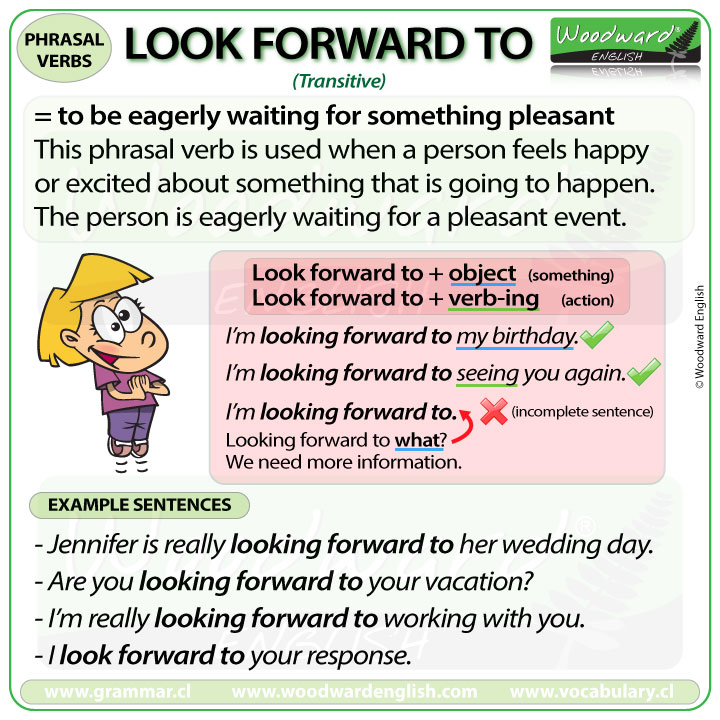The English phrasal verb LOOK FORWARD TO has the following meaning:
1. Look forward to = to be eagerly waiting for something pleasant
(transitive) When a person feels happy or excited about something that is going to happen. The person is eagerly waiting for a pleasant event or reaction.
- Jennifer is really looking forward to her wedding day.
(She is excited about something that is going to happen, in this case her wedding) - Are you looking forward to your vacation?
(I want to know if you are getting excited about your vacation) - I’m really looking forward to working with you.
(Yes, I am quite happy that I will be working with you and I can’t wait for it happen) - I look forward to your response.
(I am eagerly waiting for your reaction)
Notice how this phrasal verb is mostly used in the present continuous form.
I’m looking forward to… – You are looking forward to…
This is because it is an action or feeling happening now.
This is a transitive phrasal verb
This phrasal verb is transitive which means we need an object or something after it.
We cannot just say:
- I’m looking forward to. (This is an incomplete sentence.)
Looking forward to what? We need more information, we need something after this phrasal verb for it to make sense.
I’m looking forward to your response. (This is now a complete sentence.)
What do we put after look forward to?
We generally use:
Look forward to + an object (or something)
Look forward to + verb ending in ING (action)
For example:
- I’m looking forward to my birthday. (My birthday is something)
- I’m looking forward to seeing you again. (Seeing is the verb-ING in this case also known as a gerund)
- We’re looking forward to going on holiday next week.
Is there something that you are looking forward to?
Look forward to – Summary Chart

